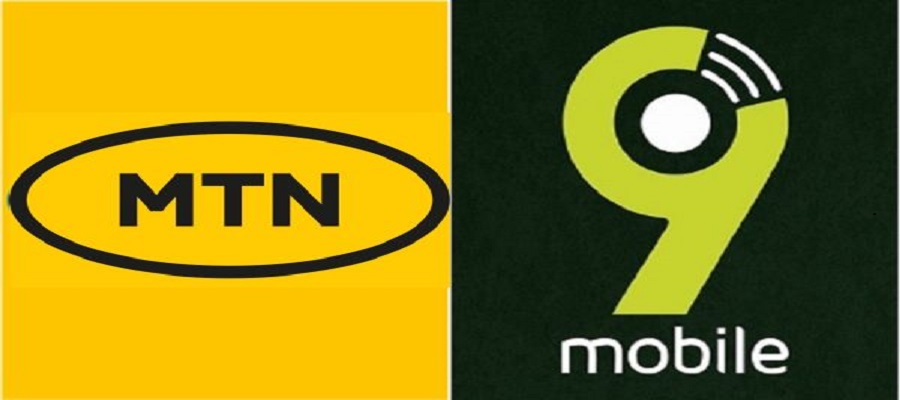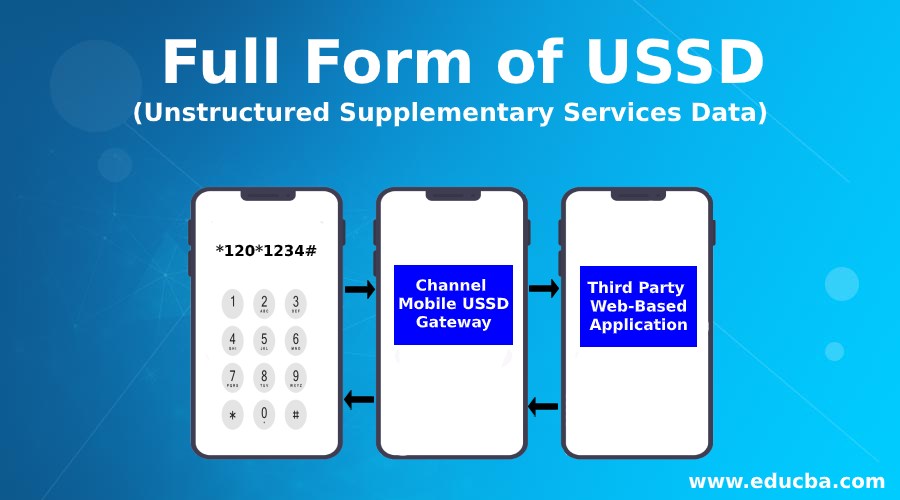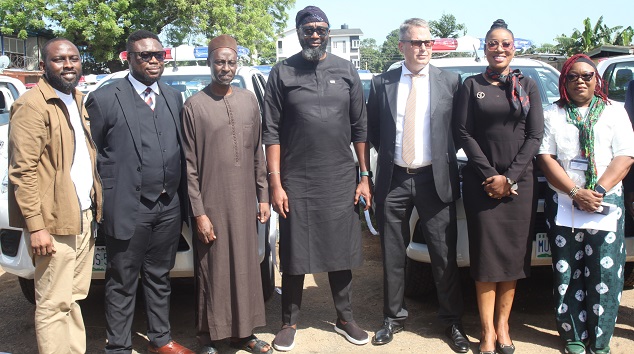Telecom
Zoho Redefines Small Business CRM Market, Introduces Team Pipelines in Bigin

Zoho Corporation, a leading global technology company, is today unveiling the latest version of Bigin, the company’s CRM solution for small businesses. As the preferred CRM solution for small businesses, Bigin offers a simple yet powerful CRM without the high barrier of entry and cost. Today’s product updates further support small and micro businesses by providing them the tools and insights they need to maintain and grow meaningful and high-value relationships with customers in a challenging economic environment.

“Small businesses face challenges in choosing the right technology for managing their customer-facing operations because of constraints related to time, cost, and software implementation,” said Kehinde Ogundare, Country Manager, Zoho Nigeria.
“Bigin is the only solution that brings together all customer operations like sales, onboarding, delivery, training, advocacy, and more into an intuitive interface that takes only 30 minutes to deploy.
“By bringing together all the facets of customer operations into a single view, Bigin allows small businesses to have a more accurate understanding of the customer’s journey.
“These insights help them attract and retain customers, ultimately growing the business. The fast-growing adoption of Bigin shows the expanding appetite of small businesses who want and need CRM technology suited to their particular needs, helping them move beyond old-school spreadsheets.“
Since Bigin’s launch in 2020, it has stood out as a robust, easy-to-use, and welcoming CRM solution thanks to its 30-minute set up promise. Bigin has seen a revenue growth of 161% in 2022 in Nigeria, indicating the revenue has doubled compared to 2021.
Zoho has observed that around 65% of Bigin’s global customers have never used a CRM previously, making it the ideal choice for business owners who are looking to move away from spreadsheets. When they outgrow Bigin, Zoho also offers them an easy migration to its full-fledged CRM solution.
Bigin now boasts 20,000 customers and continues to help small and micro businesses manage all of their customer-facing operations within a unified platform.
Bigin’s latest version includes the introduction of Team Pipelines, which allow customer-facing teams to manage their distinctive operations using a set of pipelines and sub-pipelines within a single Bigin account. Competitive offerings often cater only to a single function — like sales — whereas Bigin is an efficient solution for all customer-facing teams.
New features compile customer operations into one place, and enable tighter alignment and collaboration between individuals and teams without compromising the simplicity that makes Bigin stand out.
Key Product Updates
● Team Pipelines: This feature connects and streamlines various customer operations in one place, offering small businesses an easy way to manage their day-to-day processes and a single source of truth for analyzing customer data.
● Connected Pipelines: Automates the flow of customer data across processes, improving the customer experience and saving time on manual data entry.
● Toppings: Additional functionality and third-party integrations can be added to address specific business needs. Examples include the ‘Email-In’ topping which maps emails to customer records and the ‘File Cabinet’ topping which automates file collection and management.
● Mobile Capabilities: Zoho is providing new features across all platforms, including iOS, iPadOS, Android, and macOS and has added a new feature called Dynamic Display which allows users to customize the appearance of records in their pipelines. Bigin also recently updated its apps for the Apple’s iOS16 and Samsung Galaxy Z Fold 4 launches, where it was an exclusive launch partner.
● Developer Center: Bigin has opened its developer platform to a network of global app developers and partners who can create custom solutions for unique business needs. With various tools and components like custom fields, buttons, links, widgets, related lists, and REST APIs, developers can create new Toppings and monetise them in the Bigin Marketplace.
Disclaimer: All trademarks, product names, and company names cited herein are the property of their respective owners.
Pricing
Bigin by Zoho CRM starts at ₦2,100 /user/monthly (billed annually) for the Express edition and goes up to ₦3,600 user/monthly (billed annually) for the Premier edition. A free edition is also available.
Zoho Privacy Pledge
Zoho respects user privacy and does not have an ad-revenue model in any part of its business, including its free products. The company owns and operates its data centers, ensuring complete oversight of customer data, privacy, and security. More than 80 million users around the world, across hundreds of thousands of companies, rely on Zoho everyday to run their businesses, including Zoho itself.
Telecom
9mobile Nigeria Inks Agreement to Roam with MTN

9mobile, Nigerian operator, has reportedly gained approval for roaming on the MTN Nigeria network in a deal that some commentators suggest could improve its position in the market and, more specifically, tempt back lost subscribers.

After finally gaining regulatory approval from the Nigerian Communications Commission (NCC), 9mobile plans to launch national roaming services on the MTN network from this month.
Under the agreement, 9mobile subscribers will gain access to MTN’s infrastructure for calls, texts and data in areas where 9mobile’s coverage is weak or unavailable.
For 9mobile, the deal offers a cost-effective way to expand coverage without the heavy investment required for nationwide infrastructure.
According to ITWeb Africa, the decision comes nearly five years after initial discussions – much longer than expected due, the Techloy news service said, to regulatory bottlenecks, shifting market conditions, and unclear execution timelines.
It may, however, prove pivotal for 9mobile, whose market share has dwindled to 1.72% in April 2025, down from 6.6% in 2020 when the proposal was first submitted. Indeed, in 2015 the company once known as Etisalat Nigeria had over 23 million subscribers and a 15.7% market share.
Of course, there’s also something in this for MTN. In exchange for network access, MTN gains utilisation rights to 9mobile’s underused spectrum in the 900MHz, 1800MHz, and 2100MHz bands – key frequencies for expanding coverage and improving data capacity.
For MTN, which serves over 84 million subscribers, this additional spectrum could reduce congestion and improve service quality.
The company has also had financial difficulties in the Nigerian market due to the naira’s substantial depreciation; this deal could support better service provision at a reduced cost.
That said, MTN Nigeria’s results for the first quarter to March 31 2025 were apparently much improved, and the company recently announced a massive capital expenditure drive for 2025 of some NGN900 billion (US$568.5 million) as it seeks to significantly enhance network service quality in major cities like Lagos and Abuja and extend improvements to other areas.
Telecom
Banks, Telcos to Start Deducting USSD Charges from Airtime Today

Banks and telecom companies will begin deducting USSD banking charges directly from customers’ airtime instead of their bank accounts beginning from today, June 3.

USSD, otherwise Unstructured Supplementary Service Data, is a communications protocol used by GSM cellular telephones to interact with a mobile network operator’s computers.
First City Monument Bank (FCMB) announced this change in an e-mail message to customers, following a directive from the Nigerian Communications Commission (NCC).
Key details:
Each USSD session will cost ₦6.98 per 120 seconds, charged by your mobile network.
You will be asked to approve the charge before it’s deducted from your airtime.
If you prefer, you can use other banking channels like ATMs, mobile apps, or internet banking.
This change is part of a move to end the long-standing debt dispute between banks and telecoms over unpaid USSD fees.
As of late 2024, banks owed telecom companies ₦160 billion. For example, MTN was owed ₦42 billion by Nigerian banks.
By shifting USSD fees to customers’ airtime, the telcos aim to recover these debts and avoid future issues.
Telecom
IHS Nigeria Moves to Enhance G4S Secure Solutions Site Patrols and Increase Operational Efficiency with Patrol Vehicles

IHS Nigeria, a subsidiary of IHS Holding Limited and one of the largest independent owners, operators, and developers of shared telecommunications infrastructure in the world by tower count, has formally commissioned 65 Response, Patrol, and Escort (RPE) vehicles to G4S Secure Solutions Nigeria Limited, its long-standing security partner.

The commissioning ceremony which held in Ikeja GRA, Lagos, underscores IHS Nigeria’s commitment to operational excellence, safety, and strategic partnerships.
The fully equipped vehicles, customized with radio systems, public address systems, medical kits, ladders, and amber lights, are expected to significantly enhance G4S’s patrol capabilities and enable proactive risk mitigation across IHS Nigeria’s infrastructure footprint in the country.
Speaking at the event, Jubril Saba, Vice President, Operations at IHS Nigeria, remarked: “IHS Nigeria is delighted to formally hand over these Response, Patrol and Escort (RPE) vehicles to our valued security partner, G4S Secure Solutions Nigeria Limited. As a company, we recognize that the success of our operations lies not only in our technology and infrastructure but also in the strength of the partnerships we build and sustain.
G4S has been an essential partner in protecting our sites, supporting our teams, and ensuring operational continuity across the country. This initiative is more than just a commissioning of vehicles; it is a reaffirmation of our commitment to the safety of our people and assets, our drive for operational excellence, and our belief in strong partnerships.
We understand that securing our infrastructure and communities is critical to sustaining high-quality services nationwide, and we are confident this fleet will enhance G4S’s capacity to support us.”
Also speaking at the event, Jonas Ahl, Managing Director of G4S Secure Solutions Nigeria Limited, expressed his appreciation for the partnership:
“We are proud to receive these 65 custom-built patrol vehicles from IHS Nigeria. Each unit is fully outfitted to meet the specific security needs of our operations, equipped with communication systems, emergency response tools, and visibility-enhancing features. These vehicles will not only improve our response times and field presence but also enable us to reduce risk and deter criminal activity more effectively.
I would like to thank the IHS team for their excellent collaboration throughout this project. We are proud to serve IHS and remain committed to protecting the assets that power connectivity across Nigeria.”
This strategic gesture reinforces IHS Nigeria’s position as a socially responsible and security-conscious industry leader, while highlighting the value of operational synergy with trusted partners like G4S.
The deployment of these vehicles marks another milestone in IHS’s mission to secure its infrastructure and deliver uninterrupted service to millions of users across the country.

 E-Business1 day ago
E-Business1 day agoFarmers to Get Identity Card for Loans, Inputs

 Telecom1 day ago
Telecom1 day agoARCON Probes 9mobile over Alleged N1Bn Advertising Debt

 News1 day ago
News1 day agoSERAP Sues NNPC over Alleged Missing ₦500Bn, Seeks Accountability

 News1 day ago
News1 day agoFirst Asset Management Receives 2024 Fund Manager Award

 E-Business1 day ago
E-Business1 day agoDyna.Ai Launches Operations in Nigeria

 General News1 day ago
General News1 day agoNigeria Relaunches National Talent Export Programme to Unlock $1 Trillion Global Outsourcing Market

 Telecom1 day ago
Telecom1 day agoNiRA Holds 17th AGM, Elects New Leadership to Propel .ng Domain Growth

 General News1 day ago
General News1 day agoFG Plans Special Court for Exam Cheats

























